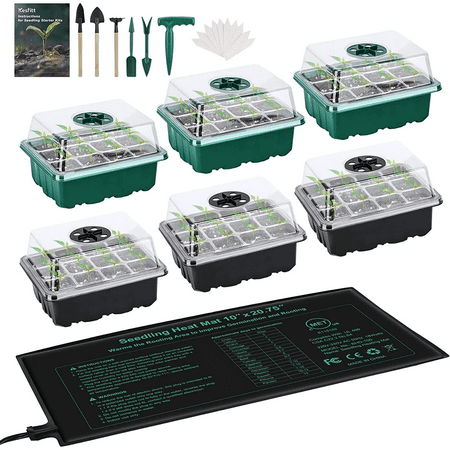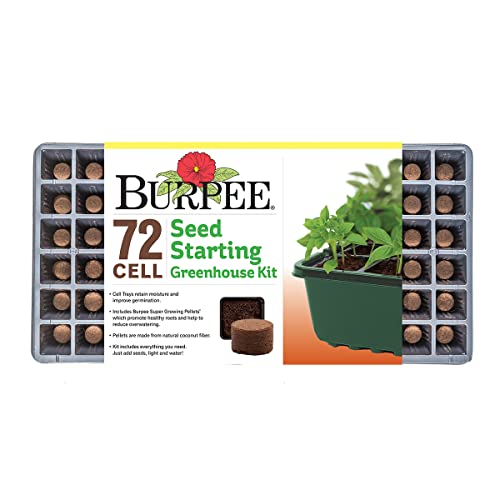7 biennial flowers to plant in June – with seed sowing advice from a professional gardener
Sowing foxglove, honesty and wallflower seed in June will result in a bounty of blooms next year

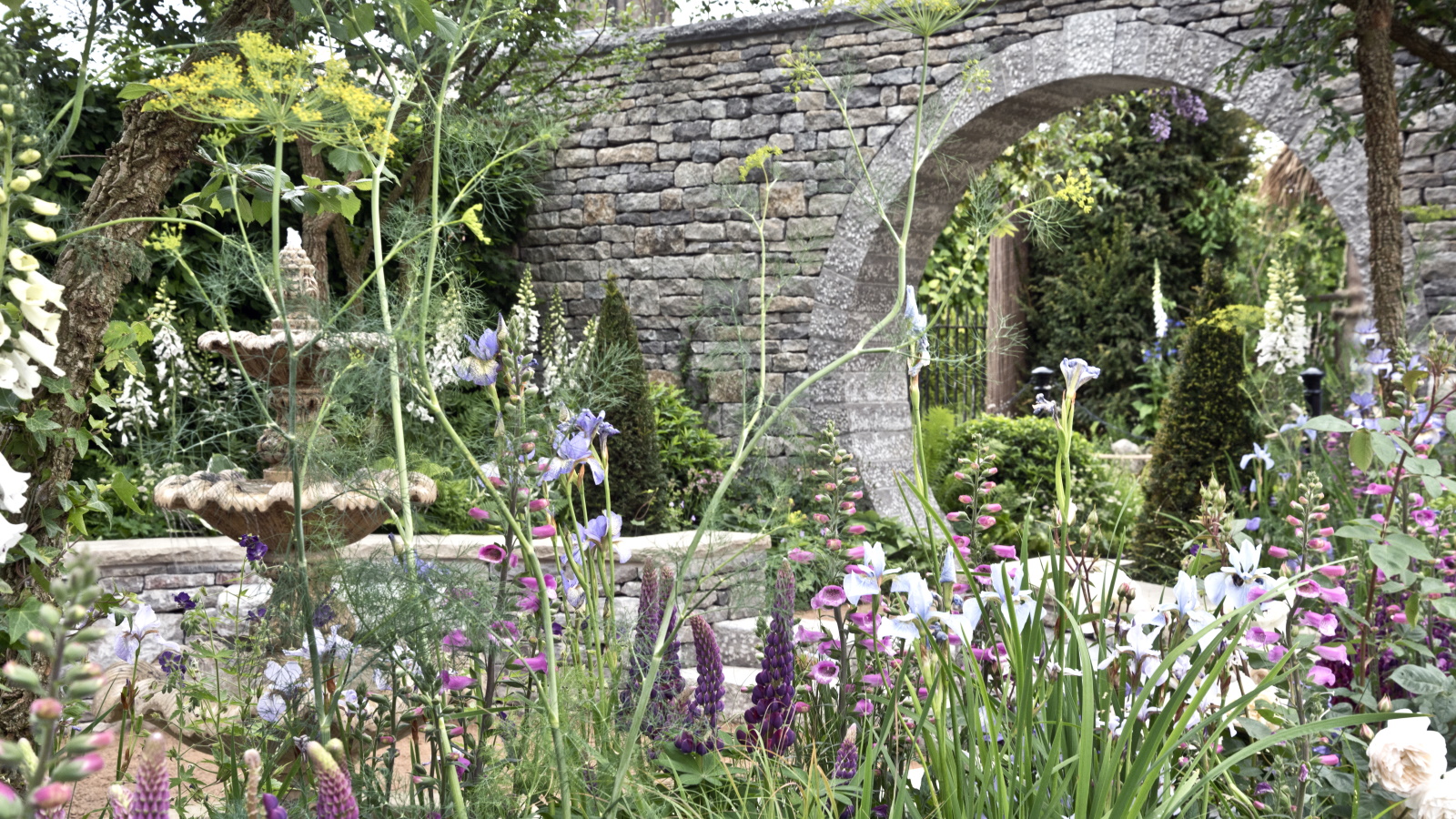
Design expertise in your inbox – from inspiring decorating ideas and beautiful celebrity homes to practical gardening advice and shopping round-ups.
You are now subscribed
Your newsletter sign-up was successful
Want to add more newsletters?

Twice a week
Homes&Gardens
The ultimate interior design resource from the world's leading experts - discover inspiring decorating ideas, color scheming know-how, garden inspiration and shopping expertise.

Once a week
In The Loop from Next In Design
Members of the Next in Design Circle will receive In the Loop, our weekly email filled with trade news, names to know and spotlight moments. Together we’re building a brighter design future.

Twice a week
Cucina
Whether you’re passionate about hosting exquisite dinners, experimenting with culinary trends, or perfecting your kitchen's design with timeless elegance and innovative functionality, this newsletter is here to inspire
June is the month to enjoy the fruits of your labors. All that time spent weeding, pruning and coaxing your plants into life has paid off, and your borders will be brimming with color and scent. While there is still much to keep you occupied in the garden, above all else, I would recommend taking a moment to sit back and enjoy the bounty of early summer.
Now, break over. June is the perfect time to sow biennial seeds. If you are wondering what are biennials, put simply, biennials are plants that have a two-year cycle. Sowing biennial seed this month allows for germination and growth before the end of the summer. During the fall and winter, biennials will enter a dormant state, before continuing to grow and blooming next year. While this might seem like a long-winded process, a small amount of effort now will produce masses of beautiful blooms next year.
So, if you are considering what to plant in June, adding 1, 2 or more biennials to your to-sow list is a good idea. Here, I share my favorite biennials to plant this month, all of which I have sown and grown in gardens where I have worked, both in heritage gardens in the UK and country estate gardens in Italy.
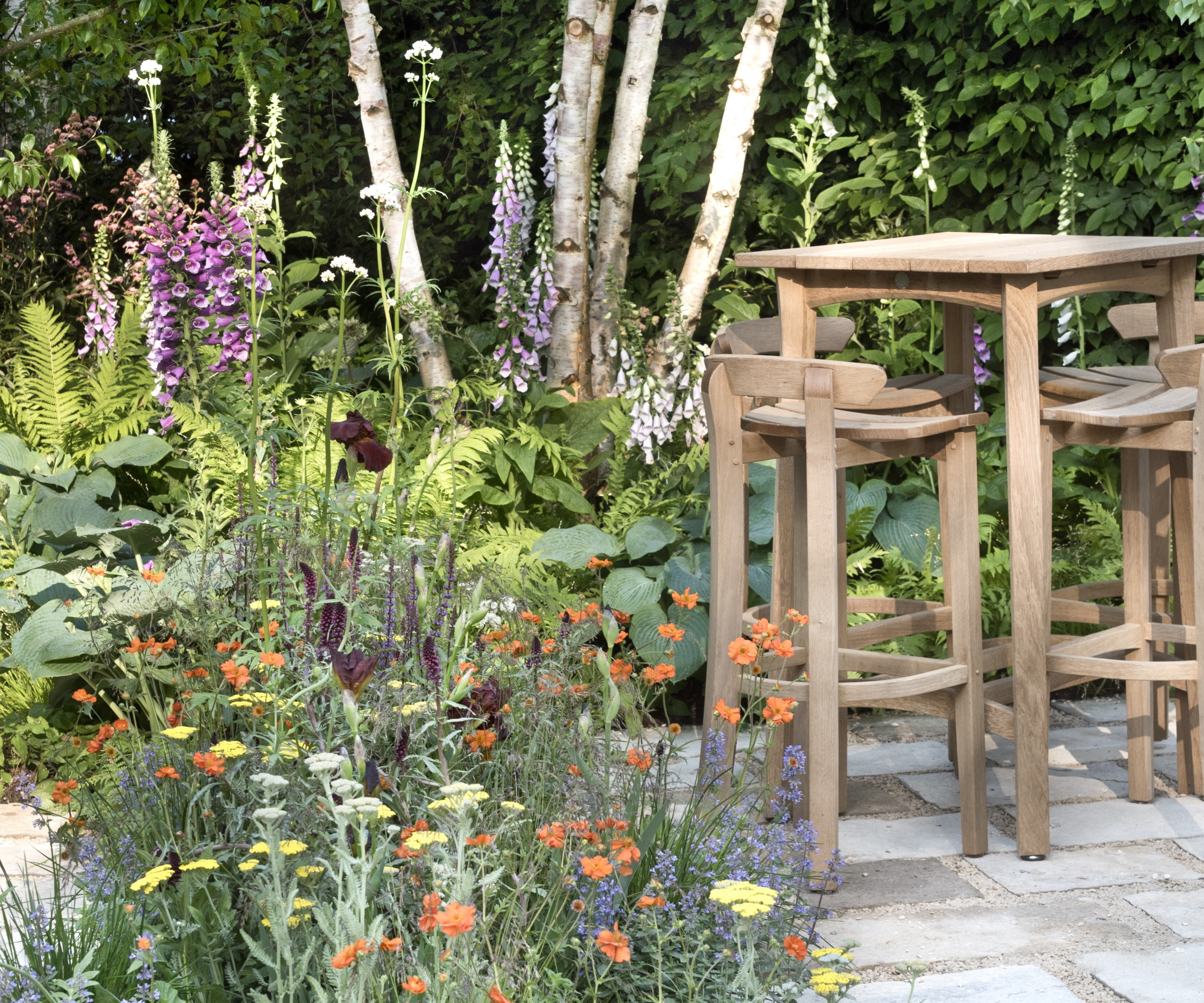
Biennials to plant in June
June is a busy month in the garden. There are many jobs on the summer gardening checklist, not least watering, feeding, and choosing what perennial flowers to plant in June.
This month is the ideal time to sow biennial seeds, and your future self will thank you for it. It is a good idea to sow biennial seeds in trays or modules and place them in a greenhouse, cold frame, or windowsill. I would recommend using a reusable seed tray, available from Walmart, which will give your seeds the best chance, and can be used again for more seed sowing next year.
1. Foxgloves
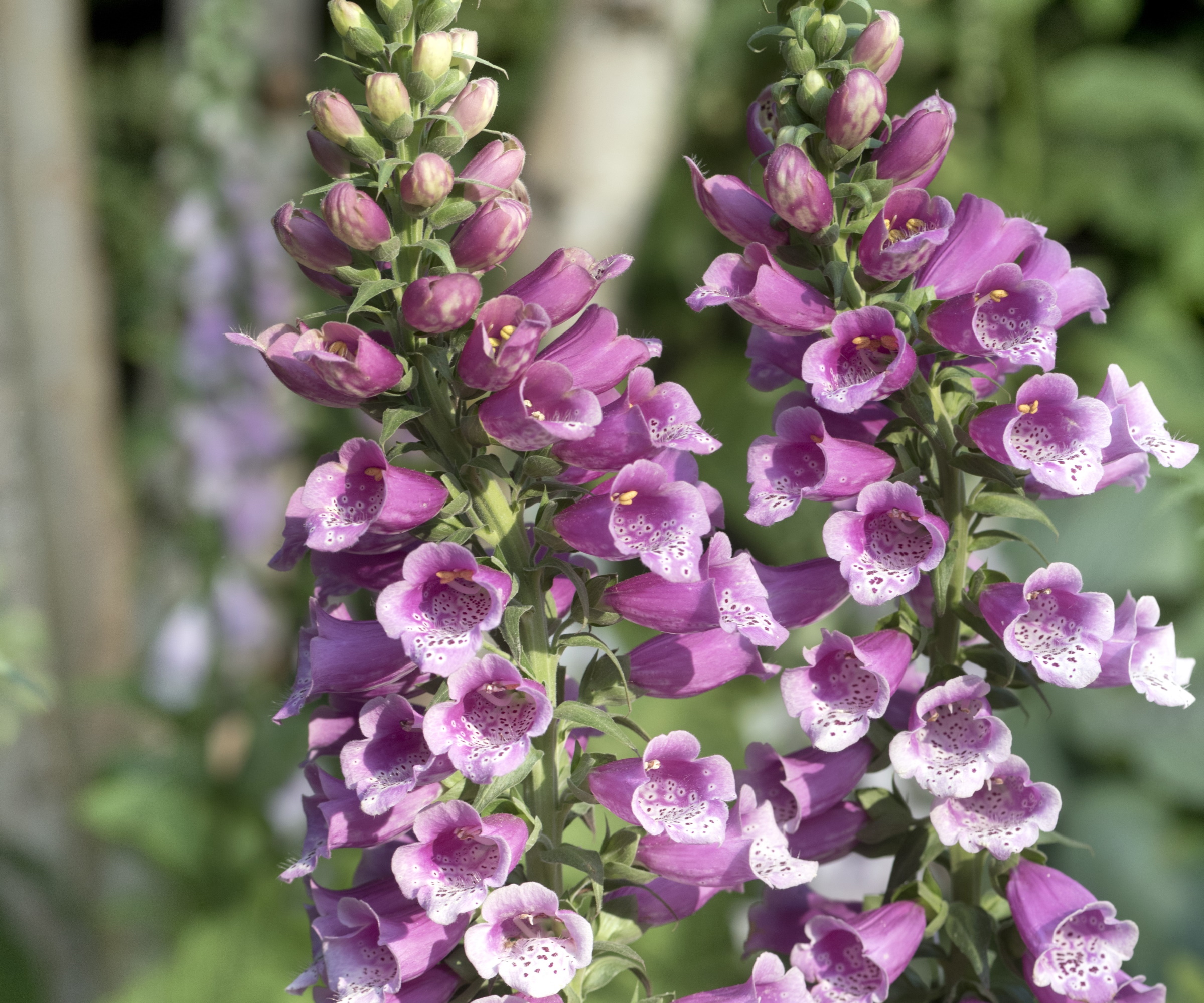
Foxgloves are a striking addition to the spring garden, adding vertical flower spikes that can reach up to 5 feet tall. When considering how to grow foxgloves, these biennials can be sown in June, before planting the small plugs in the yard in late August or September.
In my experience, the longer you can give your biennials in the borders before winter, the greater the chance of success. The more time they have to establish before the cold weather hits, the better.
Design expertise in your inbox – from inspiring decorating ideas and beautiful celebrity homes to practical gardening advice and shopping round-ups.
Foxgloves are considered one of the best self-seeding flowers, so if you are wondering what to do with foxgloves after flowering, leave the faded stems so that they can produce seeds.
You may have some foxgloves in the yard already, so why not collect seed and sow in trays this month? Sow seed thinly, as germination and growth will be improved if seedlings have enough space to develop.
Foxglove seeds can be bought online from Walmart.
2. Arctic Poppies
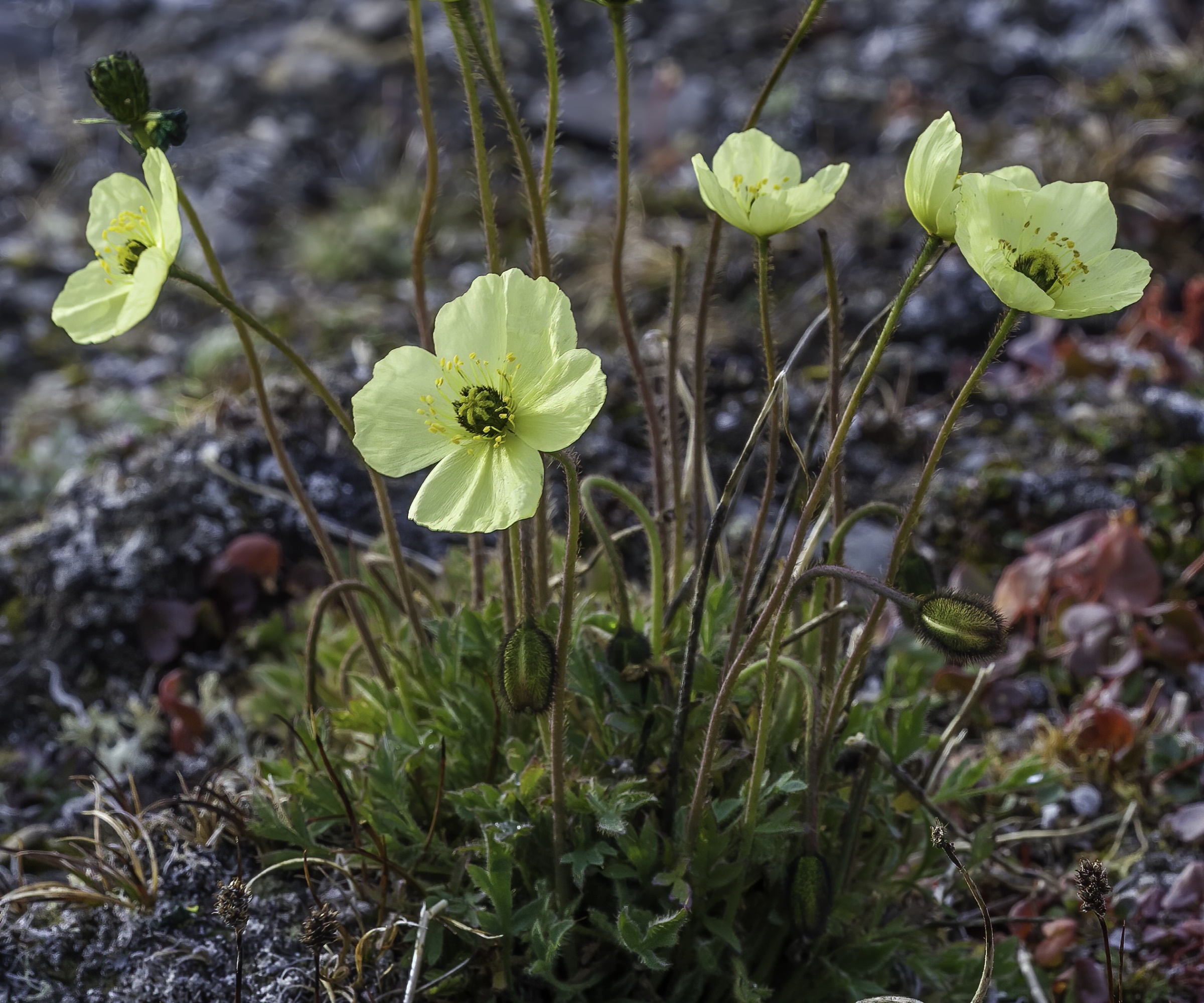
An unusual biennial, but certainly one of my favorites, the Arctic poppy, or Papaver radicatum, produces delicate, lemon-yellow flowers.
Native to the alpine regions of Europe, North America and Asia, the Arctic poppy is one of the northernmost flowering plants in the world. Quite a feat.
When considering how to grow poppies, this species is similar to most other poppies in that it prefers dry, rocky ground, so it is a good plant option if you seek gravel garden ideas. As a frost and cold-hardy plant, gardeners in cooler US hardiness zones should consider adding this biennial to their yard.
3. Honesty
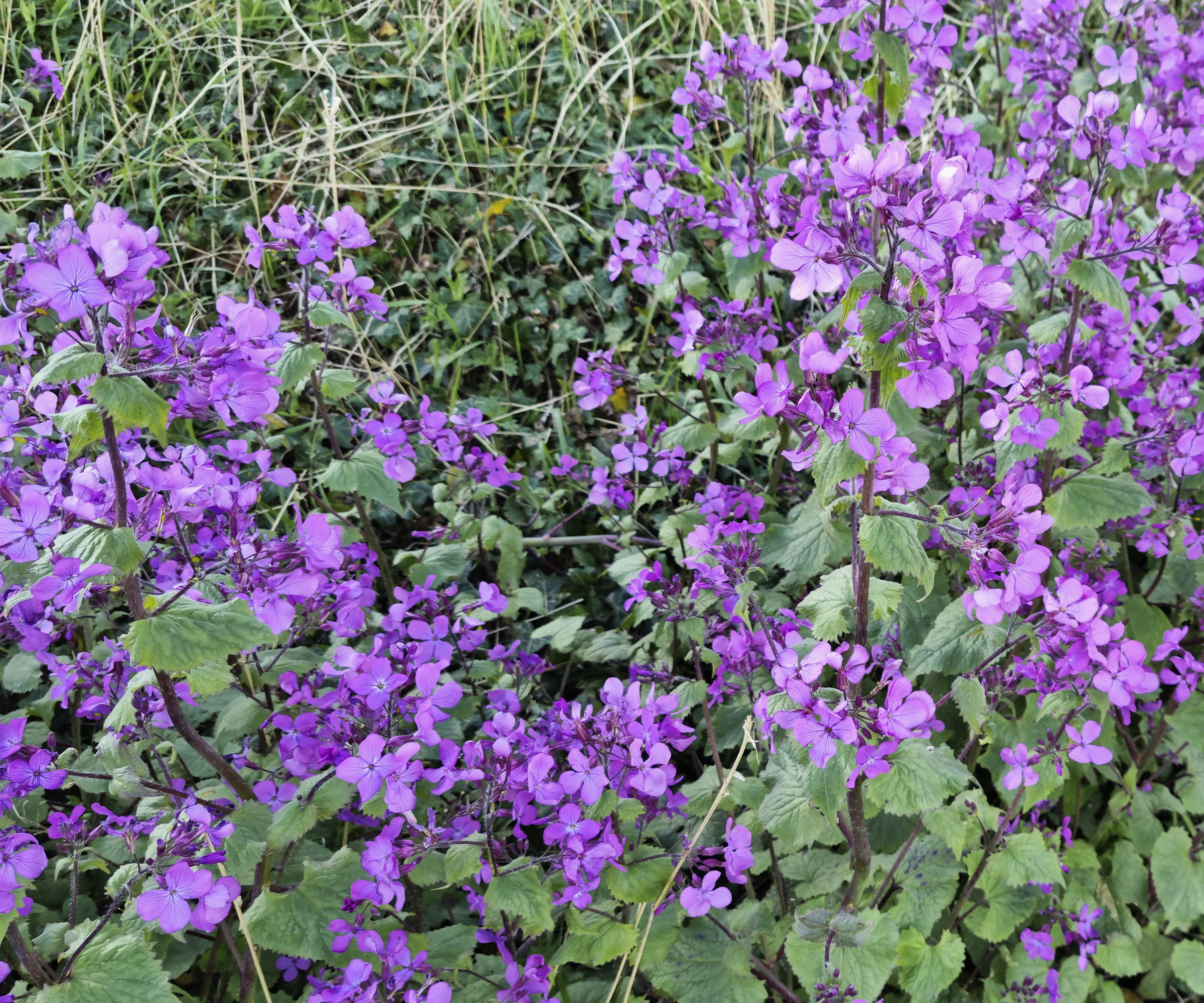
Honesty, Lunaria annua, is one of the most popular cottage garden plants, known for its long-flowering blooms. Honesty is also prized for its seed pods, which appear translucent and are often used by florists when decorating with dried flowers.
This biennial is a good plant to add to your sowing list in June, providing the seedlings enough time to grow and establish before the winter. These plants will then bloom next spring in shades of purple or white, depending on the variety you choose to grow.
One of my favorite varieties is Lunaria annua 'Corfu Blue', which produces rich, deep purple blooms - a striking addition to any border. Honesty seeds are available from Burpee.
4. Smyrnium
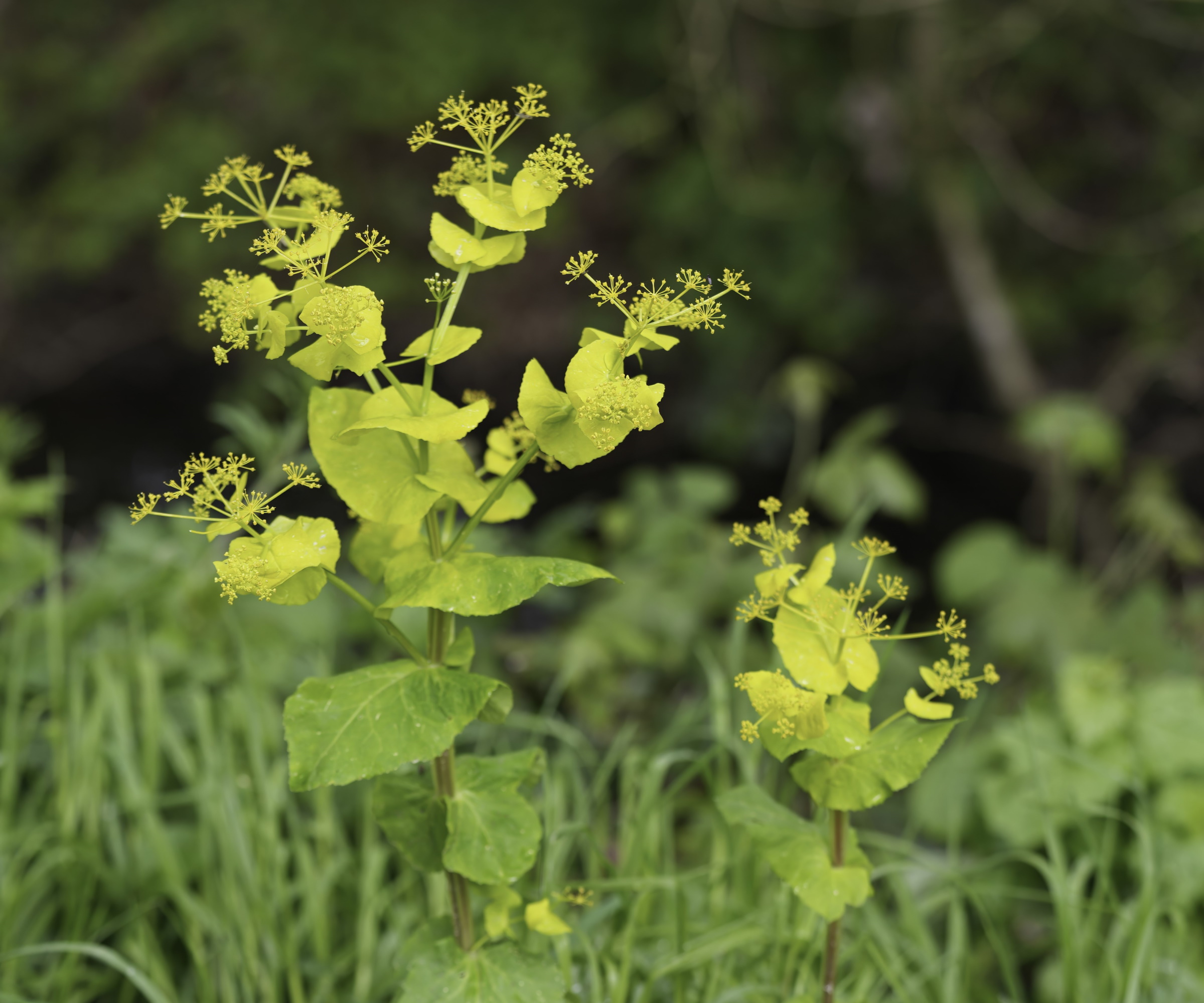
If you are seeking flower bed ideas this year, Smyrnium perfoliatum is an unusual and vibrant plant to grow, producing lime-green blooms in spring and summer.
I have previously grown this hardy self-seeder in part shade, and if anything it can often grow too well, requiring thinning out every few years. Sow Smyrnium seeds this month for a profusion of lime green blooms next year, pairing well with woodland plants, including ferns and hostas.
Don't worry if you do not have a greenhouse, seed-starter kits, available from Walmart, are a good alternative and can be placed in a bright position in your kitchen.
5. Forget-me-nots
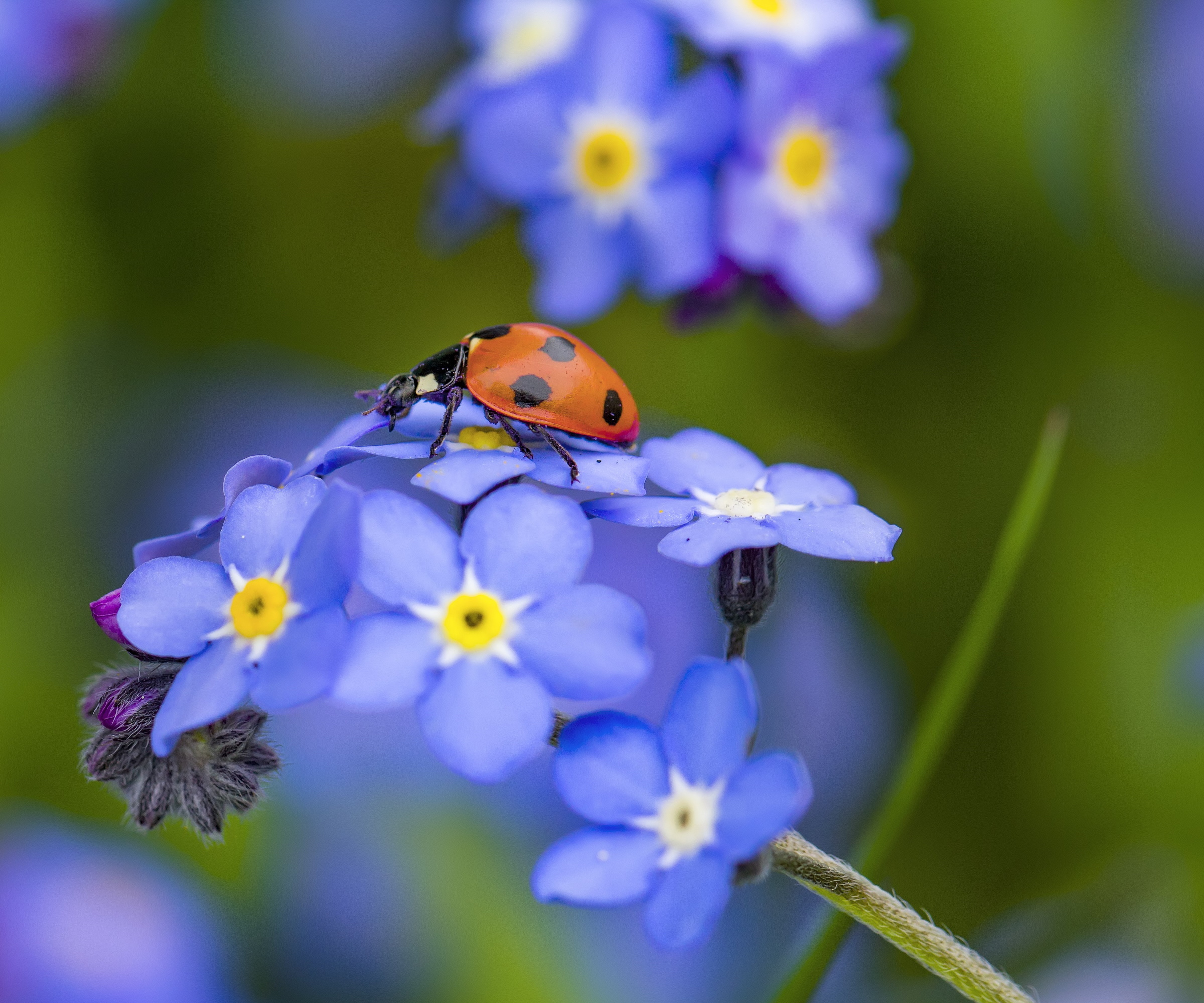
If you are looking for cottage garden ideas, forget-me-nots are the perfect plant to line the edges of pathways and patios. These biennials are self-seeding plants, so once you have a few clumps in the yard, they will come back year after year, often growing underneath shrubs and trees.
Blooming during spring and early summer, this biennial can play a supporting role in the garden borders, complementing your spring tulip and daffodil displays. For blue flowers, there is no easier plant to grow than the humble forget-me-not.
Forget-me-not seed packets are available to buy online from Walmart.
6. Iceland Poppies
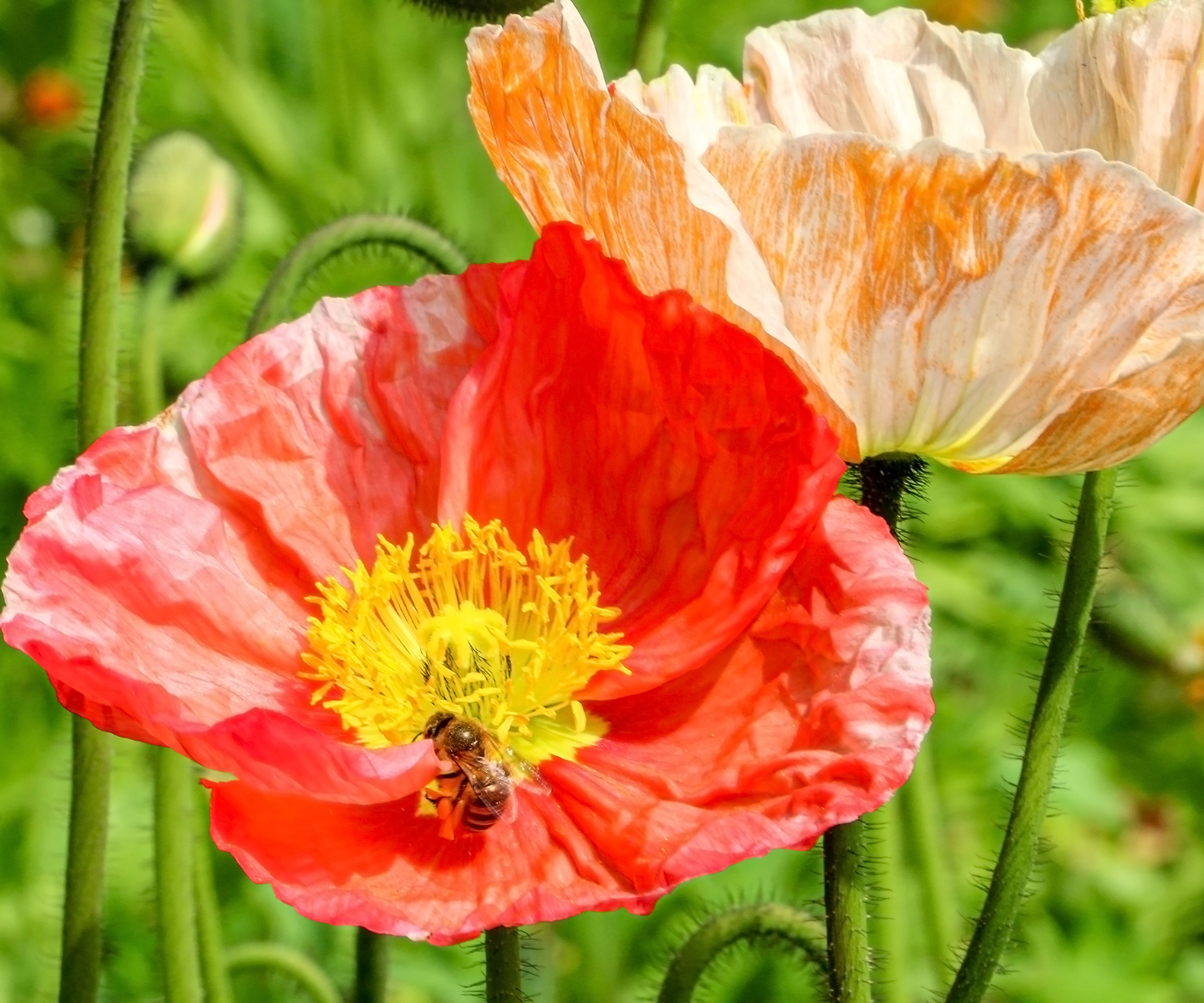
There are many different types of poppies, but the Iceland poppy, or Papaver nudicaule, is a showstopping bloom that can be grown in a range of colors.
I tend to find poppies slightly more difficult to transplant than other seedlings, so a good idea is to germinate seeds in biodegradable pots, like these from Amazon, that can be planted directly in the yard without disturbing the roots.
These poppies prefer an open, sunny spot in the yard with free-draining soil. When planted in the right spot, this poppy will bloom from May until September. Iceland poppy seeds are available to order online from Walmart.
As with other poppies, this species is a self-seeder, so be sure to leave faded flowers alone, so that seeds can be produced and scattered.
7. Wallflowers
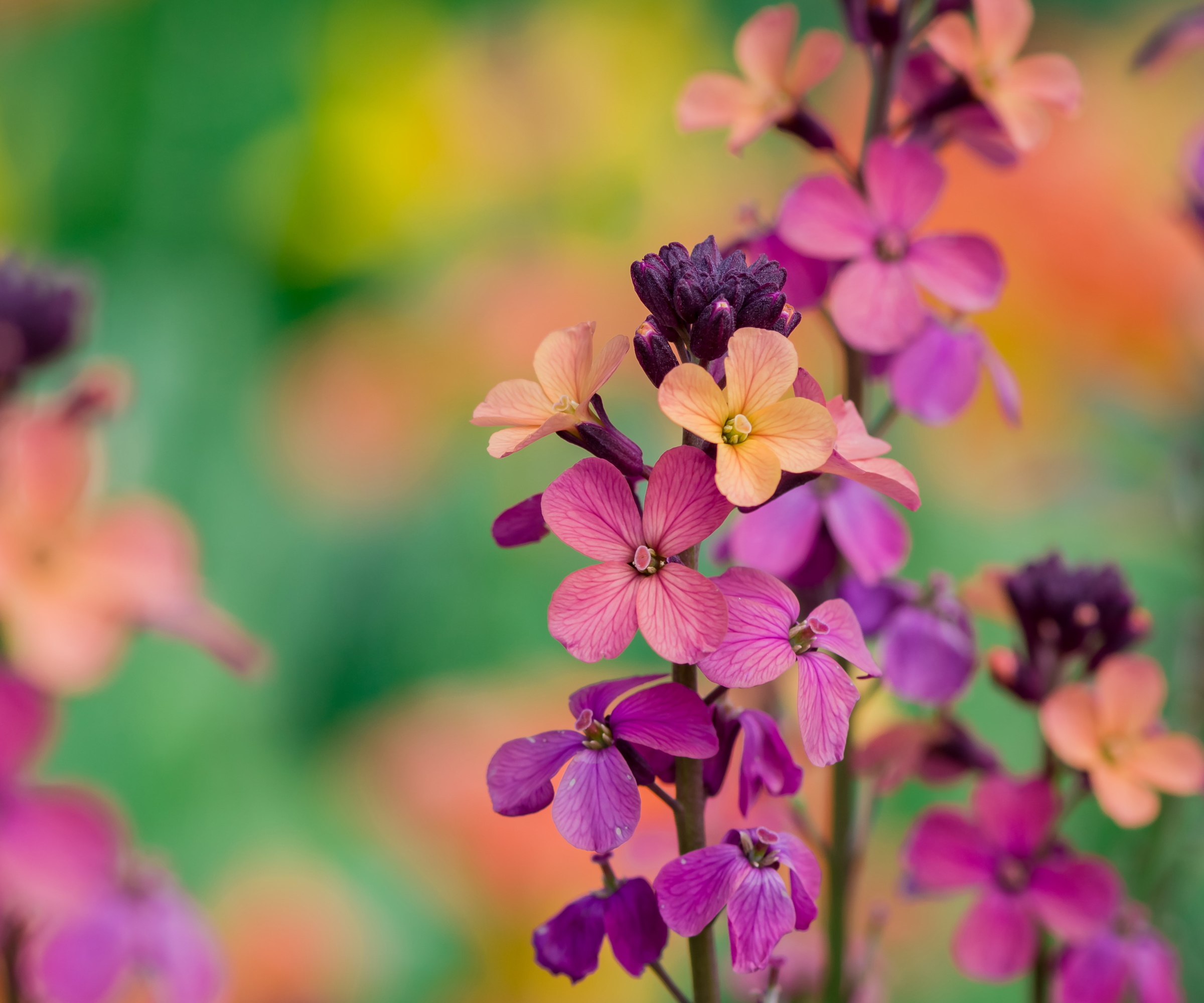
Wallflowers require full sun and well-draining soil. They typically flower for long periods over the growing season and are known to be popular plants for pollinators.
What's more, there is a great range of varieties to choose from, blooming in all manner of colors. For example, the flowers of ‘Bowles’s Mauve’ are purple-blue, while ‘Night Skies’ blooms with burnt umber and yellow hues.
Transplant seedlings to garden borders in late summer, pinching out the growing tips at this stage to encourage bushy and compact growth. English wallflower seeds are available to buy from Walmart.
FAQs
Do you need a greenhouse to sow biennial seeds?
No, you do not need a greenhouse to grow biennial seeds. Seed trays can be positioned on a windowsill, or in a bright position indoors, monitoring the soil and watering as necessary. Once your seedlings are large enough to handle, pot them into individual containers, moving them outside to a protected, sheltered location later in the season.
While June is a busy month for gardeners, spending some time sowing biennial seeds will ensure that next year's floral display is better than ever. For more gardening information on jobs to do this month, see our guide on annual flowers to sow in June and vegetables to plant in June.

Thomas is a Content Editor within the Gardens Team at Homes and Gardens. He has worked as a professional gardener for both public spaces and private estates, specializing in productive gardening, growing food and flowers. Trained in Horticulture at the Garden Museum, he has written on gardening and garden history for various publications, including The English Garden, Gardens Illustrated, Hortus, The London Gardener and Bloom. He has co-authored a Lonely Planet travel book, The Tree Atlas, due out in 2024.
